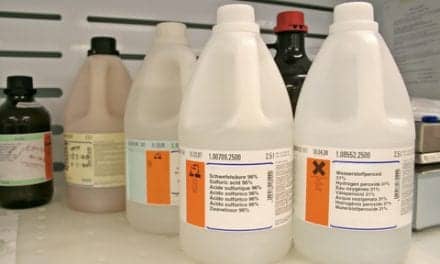06/27/06
Nearly three quarters (72%) of the cost of providing home oxygen therapy to Medicare patients represent services, delivery, and other operational expenses that benefit patients, according to a comprehensive new survey of current costs by Morrison Informatics, commissioned by the American Association for Homecare (AAHomecare). Only about one quarter (28%) of the cost represents oxygen equipment.
“The study shows that, contrary to some perceptions, home oxygen therapy involves much more than a piece of equipment,” said Tom Ryan, chairman of AAHomecare and CEO of Homecare Concepts in Farmingdale, NY.
Morrison collected and analyzed data from 74 home care providers that collectively serve more than 600,000 Medicare beneficiaries receiving oxygen therapy in their homes, which represents more than half of the Medicare population receiving oxygen therapy at home. Medical oxygen and oxygen systems require a physician’s prescription. Oxygen is highly regulated by the Center for Medicare and Medicaid Services, the US Food and Drug Administration, and the US Department of Transportation.
Oxygen therapy is critical to approximately one million Americans who suffer from respiratory disorders such as chronic obstructive pulmonary disease (COPD) and who require oxygen therapy under Medicare. Nationwide, as many as 15 million Americans have been diagnosed with COPD, which is growing in prevalence. It is a slowly progressive, incurable disease that causes irreversible loss of lung function. Though existing medications have not proven beneficial in reversing its effects, home oxygen therapy—when properly prescribed and maintained—can slow or stop lung degeneration, a statement from AAHomecare said.
AAHomecare has endorsed the Home Oxygen Patient Protection Act, HR 5513, which was introduced last month by two physicians in Congress—Rep Joe Schwarz (R-Mich) and Rep Tom Price (R-Ga). The bill restores the Medicare treatment-of-ownership of oxygen equipment to that in effect before enactment of the Deficit Reduction Act of 2005 (DRA). A provision in the DRA requires oxygen users to assume ownership of and responsibility for the oxygen system they use after 36 months. The DRA policy change effectively severs the patient-provider relationship for home oxygen therapy, which raises numerous patient-safety concerns. About 25% of Medicare home oxygen patients continue to need oxygen therapy beyond 36 months.
AAHomecare, the American Lung Association, and other patient and provider groups vigorously oppose the change in oxygen policy, which does not save Medicare any money. Medical oxygen therapy at home costs an average of $7.62 per day under Medicare. The average hospital cost under Medicare is $4,603 per day.
“We believe that Congress inadvertently overlooked important patient and public safety concerns associated with home oxygen therapy, and that the new oxygen equipment ownership provisions may actually conflict with existing FDA regulations,” said Ryan. “A national Medicare policy that does not account for the many services associated with oxygen therapy shortchanges both the patient and the provider. As a result, up to one million Medicare patients who require medical oxygen may find breathing even harder than it already is. It is time that CMS and Congress recognize that the services documented in this Morrison study represent the industry standard of care in the United States, regardless of payor source. Managed care, Medicaid, and Medicare patients alike all require the same service categories.”
Ryan continued, “Home oxygen reimbursements under Medicare have been cut by nearly 50% over the past decade. This direction in policy will shrink and erode the nation’s home care infrastructure, which delivers high-quality, cost-effective care to a growing population of older Americans.”
In a letter to Members of Congress earlier this year, American Lung Association President John Kirkwood said that the DRA provision raises many quality of care, continuity of care, and patient out-of-pocket costs issues that may have significant impact on the lives of people with lung disease. “The American Lung Association is deeply troubled that Congress is acting precipitously without enough information to inform lung disease patients of the impact of these proposed changes,” Kirkwood wrote. “We urge Congress to ensure these changes will not adversely impact patient health, interrupt continuity of care, or shift additional costs to patients and their families.”







